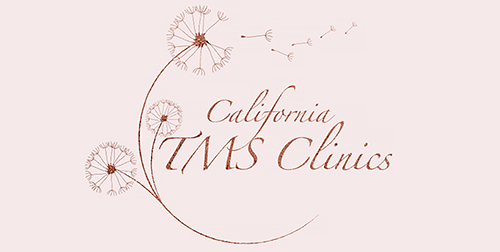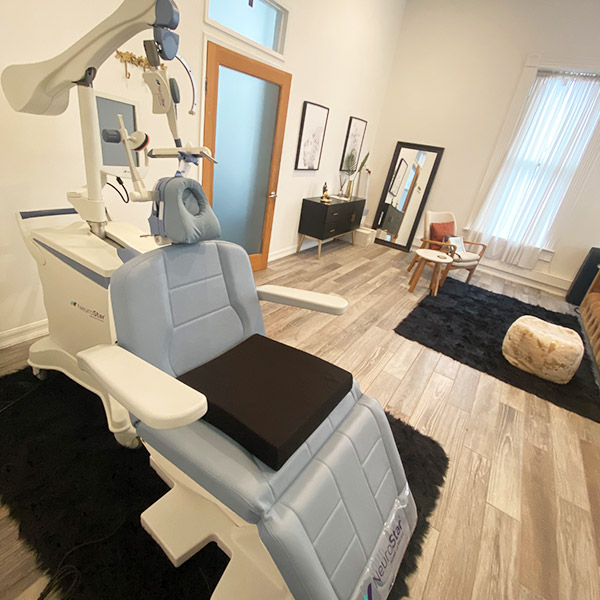Can TMS Therapy Help With Anxiety Disorders?
Anxiety is a normal and healthy emotion, but regularly experiencing disproportionate anxiety levels can be a disorder. Anxiety disorder causes excessive tension, panic, apprehension, and distress.
It not only affects how a person processes emotions and behaves, but also induces physical symptoms. Even though mild anxiety can be ambiguous and alarming, severe anxiety may significantly alter normal life.
40 million Americans suffer from these mental disorders, but only 36.9 percent of people receive treatment. With this in mind, providers across the nation and around the world are implementing various treatments for anxiety disorders so as to fight back.
TMS Therapy or Transcranial Magnetic Stimulation is a relatively new and effective treatment technology, quite helpful in mending those suffering from various mental issues such as anxiety disorders. TMS Therapy and anxiety disorders are the two main subjects that will be discussed in this article. If you're curious about what TMS therapy is, then read on.
Definition of TMS Therapy
TMS is a type of therapy that stimulates the brain to work more efficiently. In this non-invasive treatment, electromagnetic pulses stimulate nerve cells, moderately reducing symptoms of neurological or mental health illnesses.
According to the Food and Drug Administration (FDA), TMS is a successful and approved depression treatment. TMS is not the primary treatment option; doctors recommend TMS only after patients stop responding to antidepressants and psychotherapy. Moreover, research has proven that TMS might be useful for other disorders, like anxiety, post-traumatic stress disorders, and Parkinson’s disease.
How TMS Therapy Works
TMS therapy is an outpatient procedure performed by a TMS technician or physician in a clinic and hospital. Before the procedure, the technician will ask that magnet-sensitive items, such as jewelry be removed.
Since this treatment for anxiety disorders is an outpatient procedure, you won't need general anesthesia. Instead, you'll sit on a comfortable chair and be awake throughout the treatment. For the first session, your head will be measured to determine where to place the magnetic coils. In order to personalize the TMS machine’s settings, the technician will conduct other measurements and tests as well.
The coils will be placed on the top/front part of your brain to start the treatment by the technician. The treatment varies from 30-60 minutes per session. Although the length and number of sessions depend on how the patient responds and specific conditions, the procedure is generally five days a week for about four to six weeks. The patient can resume their normal daily activities right after the session concludes.
Difference Between Anxiety & Anxiety Disorder
While anxiety can cause discomfort, it’s not always a medical condition.
What’s Anxiety
Feelings of anxiety aren't only natural but crucial for survival when facing potentially dangerous triggers.
Adrenaline is a hormone and chemical messenger in the brain that triggers anxious reactions in a process called “fight-or-flight” response. This process prepares humans to physically face or flee any potential dangers.
Today, anxieties revolve around money, work, health, family life, and other serious matters that require a person’s awareness without necessarily expecting the “fight-or-flight” response. The anxious feeling during a dangerous circumstance or before a significant life event is a normal echo of the original “fight-or-flight” response.
What’s Anxiety Disorder?
Sometimes the severity and duration of an anxious feeling can be out of proportion to the original stressor or trigger. Increased blood pressure and nausea may also develop as physical symptoms. According to APA, having recurring intrusive thoughts or concerns is the most appropriate description of a person with anxiety disorder. Once anxiety reaches the level of a disorder, it can interfere with daily functions.
Types of Anxiety Disorders
Anxiety disorders fall into many types, as described below:
Generalized Anxiety Disorder
When a person experiences unreasonable, long-lasting worries and anxiety about nonspecific life events, objects, and situations, they are suffering from a generalized anxiety disorder or GAD. GAD is a chronic illness and among the most common anxiety disorders out there. People with this disorder are not usually able to identify the reason for their anxiety.
Agoraphobia
Agoraphobia is another type of anxiety disorder involving fear and avoidance of events, places, or situations from which it may be hard to flee or in which help would not be available if a person becomes trapped. This phobia should not be confused with a phobia of open spaces as they're not the same. In agoraphobia, people have apprehension of leaving home or using public transportation.
Panic Disorder
What characterizes this type of anxiety disorder is the sudden or brief attacks of apprehension and intense terror that lead to confusion, dizziness, shaking, nausea, and breathing difficulties. Panic attacks can last for ten minutes or, in rare cases, for hours. People experience panic attacks/panic disorders, usually after terrifying events or extended tension/stress. In severe cases, this type of anxiety disorder occurs without any specific reason/trigger.
Selective Mutism
This form of anxiety is prevalent in children. Although they may have great verbal communication abilities, children with this disorder are usually unable to speak in public, such as in school.
Specific Phobia
Excessive fear and avoidance of a particular object or situation characterize specific phobia. Phobias relate to a particular cause; therefore, they're not like other anxiety disorders.
Social Anxiety Disorder, Social Phobia
A person with social phobia fears public embarrassment or fear of unfavorable judgment from others in social situations. Anxiety around rejection and humiliation, stage fright, and fear of intimacy are feelings that define social anxiety disorder or social phobia. People suffering from social phobia usually avoid human contact and public situations, and for them, routine/normal life is rendered highly problematic.
Can TMS Therapy Help With Anxiety Disorders
To answer this question, one could emphatically say that with hundreds of studies conducted worldwide with highly favorable results, there is now little doubt that a positive relationship DOES exist between TMS therapy and anxiety disorders. These studies reveal that different anxiety disorders such as generalized anxiety disorder, obsessive-compulsive disorder, and panic disorder can be effectively treated with TMS therapy.
However, there is still more to be discovered. Also, there is a crucial need for more consistency and consensus between the studies toward an accepted strategy to use TMS therapy as an effective treatment for anxiety disorders. These strategies include the number of pulses, better defining treatment target location, and the number of sessions needed to obtain remission from anxiety symptoms.
TMS therapy can be used as an effective treatment for the following conditions as well:
TMS Therapy & Depression
TMS is mainly used to treat Major Depressive Disorder (MDD) or simply depression. In general, TMS therapy is an effective treatment for those who don't respond to other treatments such as medication and psychotherapy. Nearly 30% of MDD patients experience resistance and require TMS as an alternative, more effective treatment.
Depression occurs when prefrontal cortex activity is reduced, causing low energy or appetite loss. No wonder folks with depression are often viewed as sad and weak. To decrease depression symptoms, the technician utilizes TMS therapy to trigger nerve cells, leading to more activity in the prefrontal cortex.
TMS Therapy & Obsessive-Compulsive Disorder (OCD)
In 2018, the FDA stated that TMS therapy might help achieve remission from obsessive-compulsive disorder or OCD symptoms. Since OCD patients don't always respond to psychotherapy and medications, TMS is recommended as an alternative treatment. OCD occurs when increased activity occurs between the striatum and prefrontal cortex (associated with severe obsessive-compulsive disorder symptoms). The magnetic impulses in TMS therapy can curtail OCD symptoms by inhibiting activities in this part of the brain.
TMS Therapy & Anxiety Disorders
As with OCD and depression, TMS can treat anxiety disorders as well. TMS is often employed to ease symptoms of a generalized anxiety disorder (via reducing nerve cell activities in the prefrontal cortex). Nerve cell activities in this region are associated with severe anxiety disorder symptoms such as increased blood pressure and sweating.
TMS & Post-Traumatic Stress Disorder (PTSD)
TMS has also proven effective with PTSD. Since the prefrontal cortex regulates how the brain processes fear and anxiety, any abnormal activity in this region can lead to a specific mental disorder. A study in 2018 revealed that TMS alongside cognitive processing therapy could target the prefrontal cortex, thus reducing PTSD symptoms.
TMS & Stroke Rehabilitation
Research indicates TMS alleviates stroke rehabilitation. A stroke occurs when the brain doesn't receive enough blood to feed the cells, causing brain cells to die. The consequence of this phenomenon is long-term loss of muscle movement. The idea of utilizing TMS in such cases is to alter the activity of the motor cortex by the magnetic impulses. Since dysphagia, or difficulty swallowing, can sometimes occur alongside stroke, TMS may also ameliorate the condition by stimulating the motor cortex.
TMS & Schizophrenia
Another chronic and severe disorder is schizophrenia that also can be treated by TMS therapy. Auditory hallucination is the main symptom of this mental disorder (affecting approximately 75% of patients). To treat this illness and reduce auditory hallucinations, TMS magnetic impulses target the temporoparietal cortex. This region of the brain processes language and is hyperactive in people with schizophrenia.
TMS & Parkinson’s
There’s evidence that TMS may treat Parkinson’s, a neurological disorder. Motor dysfunction, including balance issues, tremors, and freezing of gait, are among Parkinson’s main symptoms. Freezing of gait occurs when a patient feels frozen and can’t move while walking. This symptom can be improved upon via using TMS therapy. TMS can normalize the connection between parts of the brain that cause gait freezing.
TMS Therapy Side Effects
Alongside benefits and advantages, TMS therapy also comes with some common/uncommon side effects:
Common Side Effects
TMS side effects have been reported as ranging from mild to moderate, including:
- Lightheadedness
- Scalp irritation (at the area of stimulation)
- Headache
- Itching, spasms, or twitching of facial muscles
To reduce symptoms/side effects, the technician can adjust the degree of the magnetic impulses or ask you to take over-the-counter painkillers before the procedure.
Uncommon Side Effects
Severe side effects are generally rare. Some are alluded to here:
- Hearing loss (if ear protection during treatment is inadequate)
- Seizures
- People with bipolar disorder may suffer from mania.
Bottom Line
TMS can alleviate depression symptoms by targeting nerve cell activity in the brain. According to studies conducted across the globe, TMS demonstrated benefits for other mental disorders such as anxiety, OCD, PTSD, etc.
This therapy may also alleviate motor dysfunction and be relatively helpful for multiple sclerosis, stroke rehabilitation, and Parkinson's disease. If you’re suffering from any type of anxiety disorder and are interested in TMS, please contact our team for further information and clarification.


